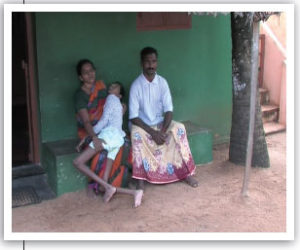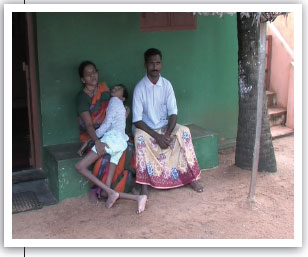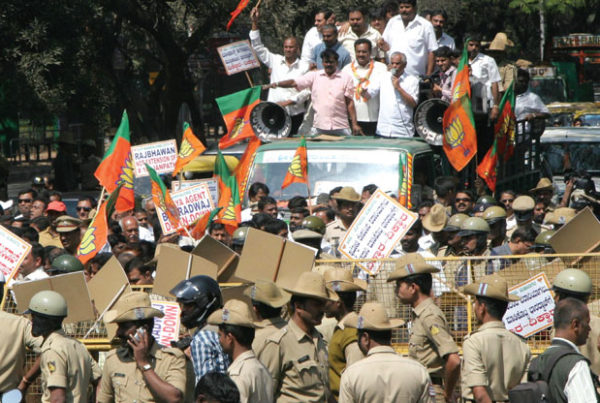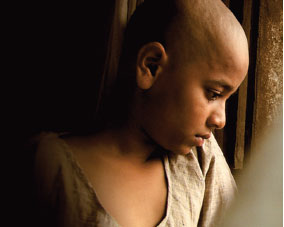In the doc: A column on documentaries
Film: Radio Stories
Director: Amudhan RP
THE BLANK looks that greet the prowling camera in the hospital ward do not immediately signal a warning; hospital wards are, after all, not the place for engaging patients in conversations. But a minute later, when a woman patiently unwraps layers of bandage and reveals a knee bloated to the size of a tiny boulder, it is time to bolt. You could ignore the warnings and continue to watch, but only with the sharp discomfort that life’s realities force on you.

Scarred for life: Radiation from the IREL mines has left many villagers struggling with cancer
This feeling of discomfort will not surprise if you are familiar with the director. In his previous film, Shit, Amudhan trailed a manual scavenger who cleaned toilets in Madurai. Shit picked up the Jury award at the Mumbai International Film Festival in 2006. Now, he is back with Radiation Stories.
Stories of horror unfold as Amudhan takes us through three villages in coastal Kanyakumari, Tamil Nadu. Since 1963, the villages have played host to Indian Rare Earth Limited (IREL), a public sector company under the Department of Atomic Energy, that mined beach sand for radioactive minerals to feed India’s nuclear plants. In the villages, there are no questions or answers as people resign themselves to difficult lives. As she struggles to support her son’s frame on her lap, a mother talks of deformities that will never allow her son to walk. He is epileptic, can barely manage to close his mouth and is constantly ill.
Elsewhere, an old man talks of rectal cancer. The shock in Amudhan’s voice is apparent as he attempts to clarify: Has he had cancer since 1950 or since he was 50 years old? Since 1950, says the old man patiently. He watched his daughter die of blood cancer, he says, and for the past 13 years, he has been unable to move. Even as he ruminates about divine punishments, he turns to Amudhan and asks for help to urinate into a plastic jug placed nearby. There is no sense of shame. The voice doesn’t quiver, the eyes aren’t averted.
Horror stories unfold as the filmmaker takes us through villages that have played host to IREL
A step away from the horror stories, there are still no questions or answers. What questions can be asked of government institutions that invoke the Official Secrets Act at every turn? For people of Manavalakurichi though, IREL has offered them an answer that is of most consequence. Having mined in their lands and extracted from them the price for national pride, IREL helped establish a cancer centre. And stopped paying for treatments aftser a few years. The blank looks in the hospital wards have an explanation after all.
—
This article was originally published in Tehelka, a leading independent news magazine in India, known for its investigative journalism.



